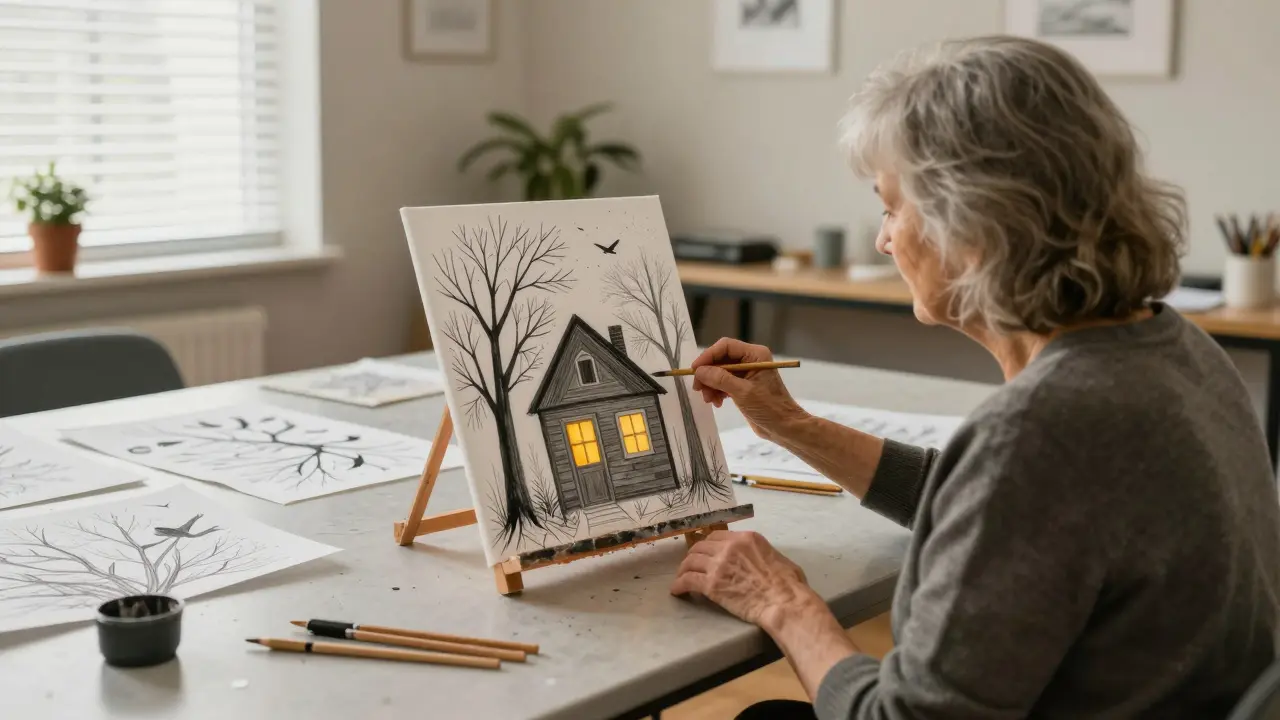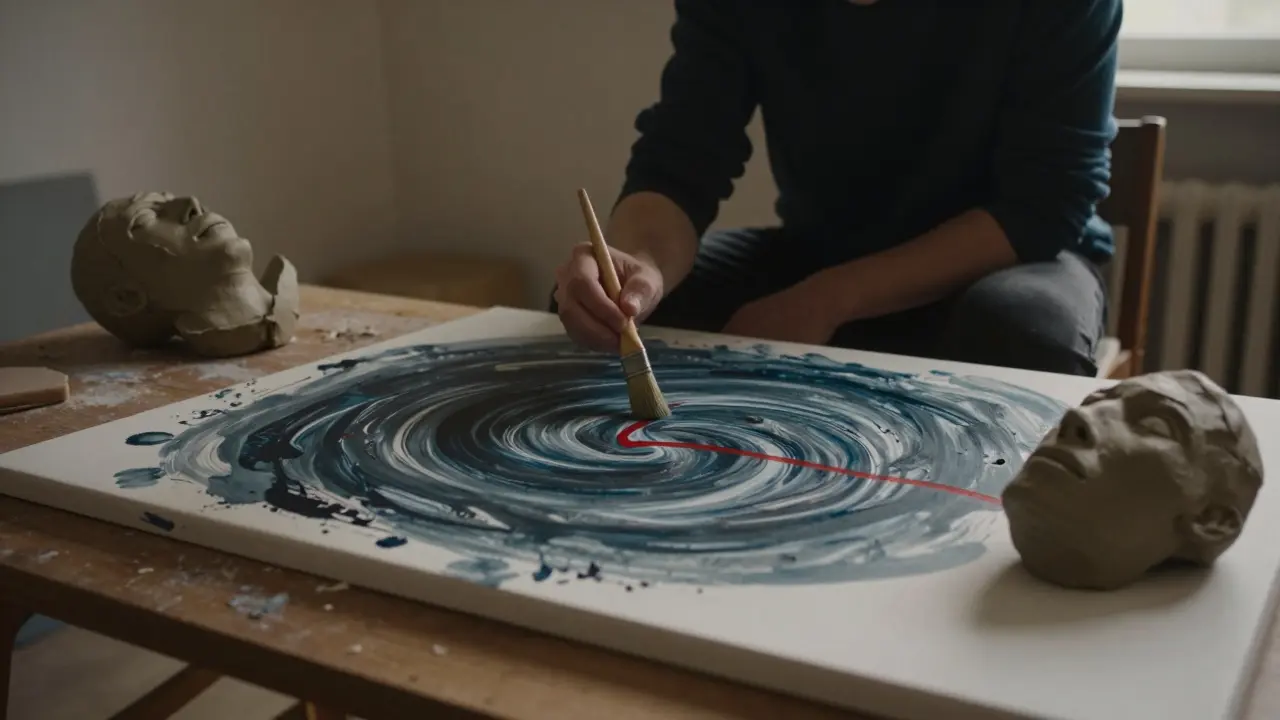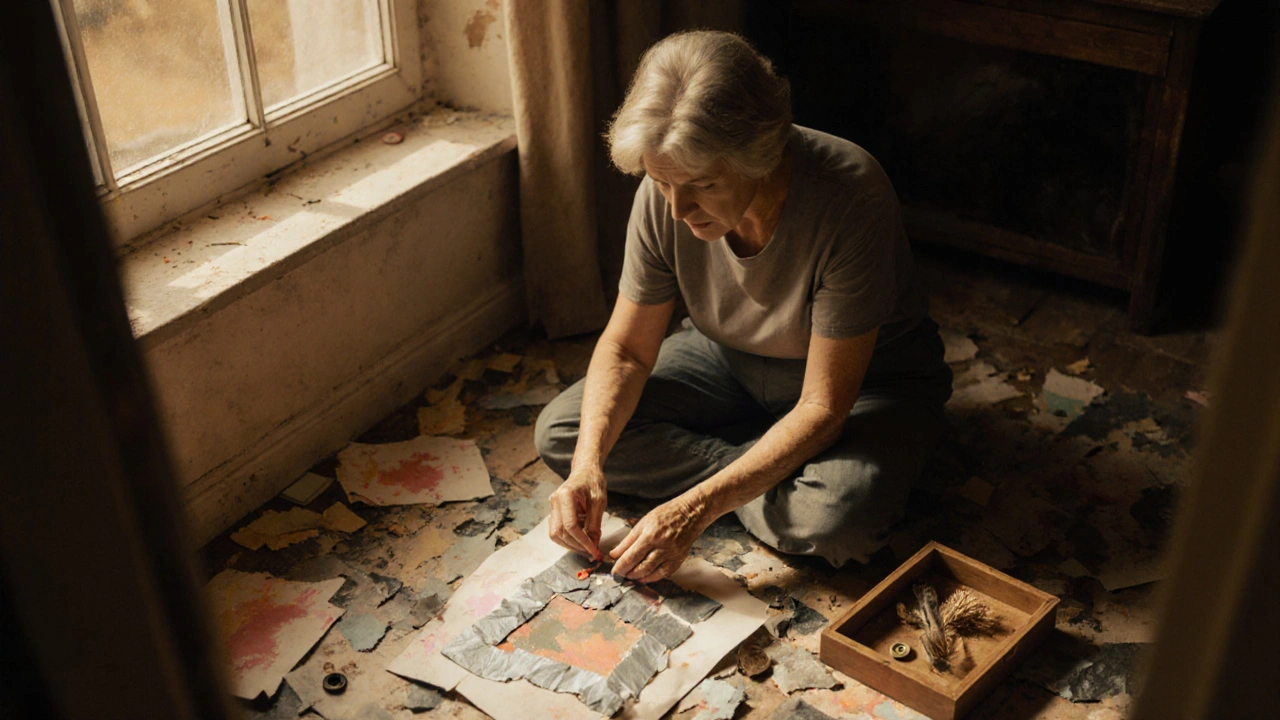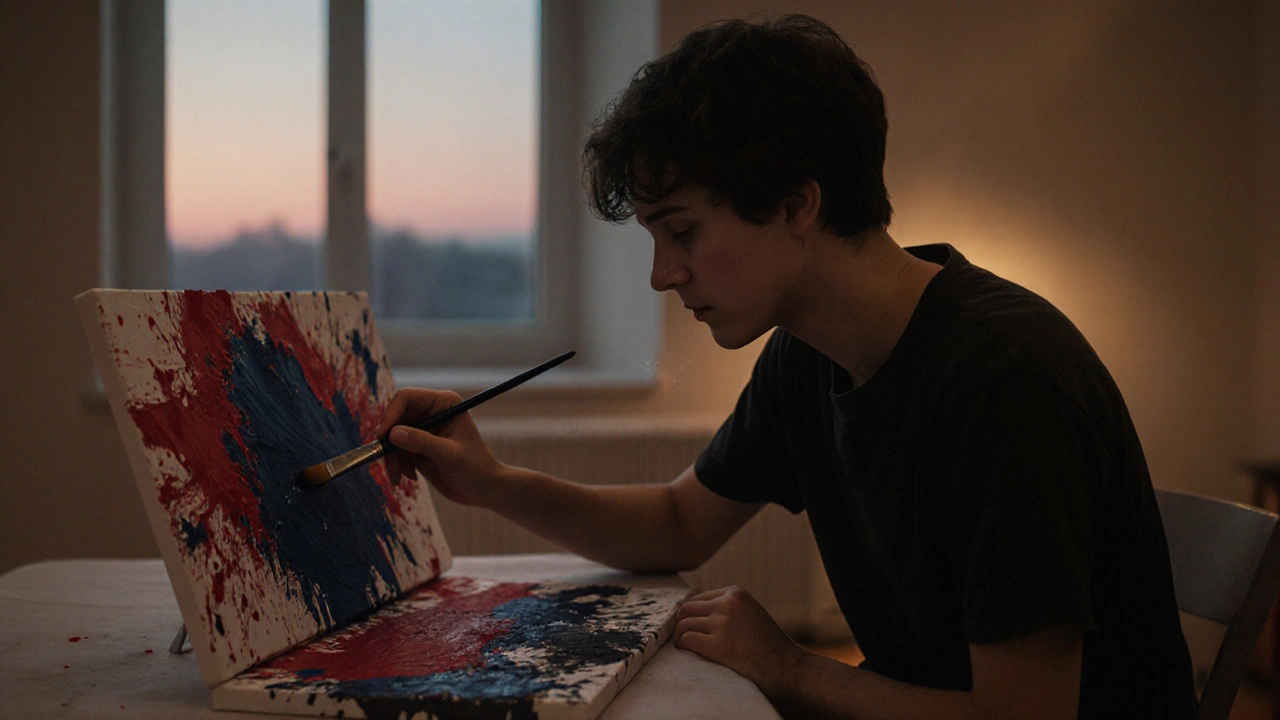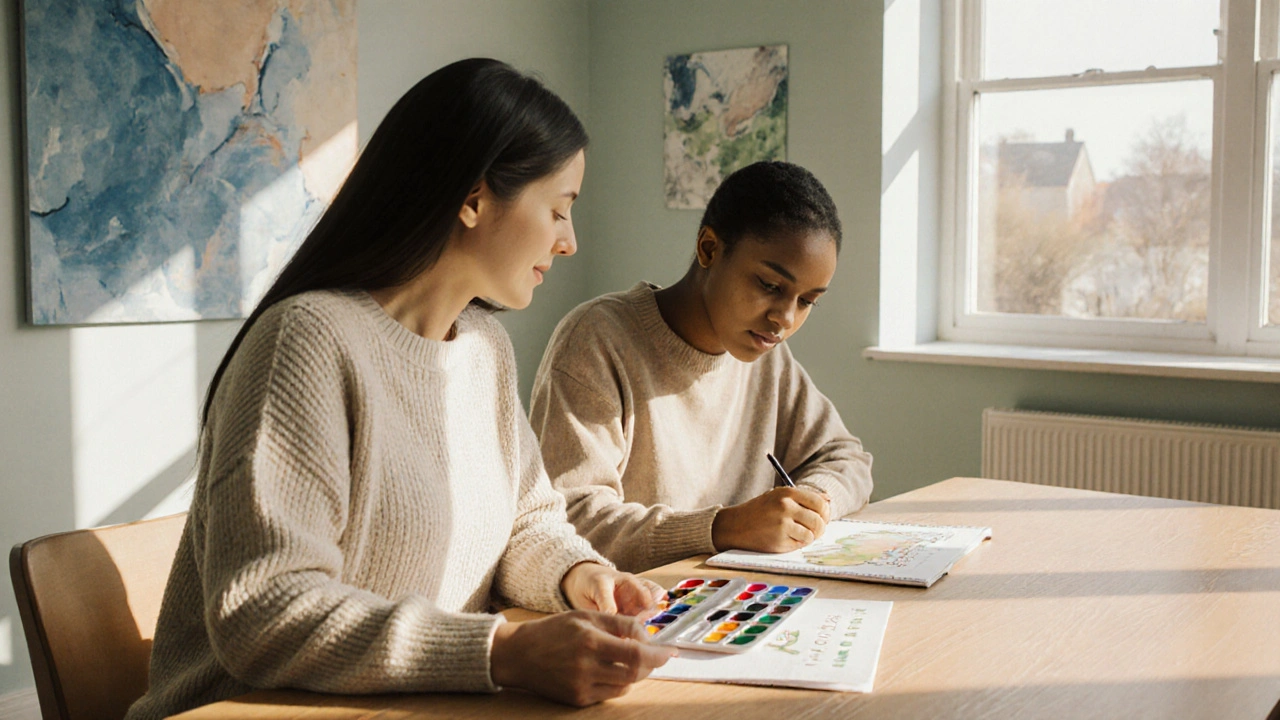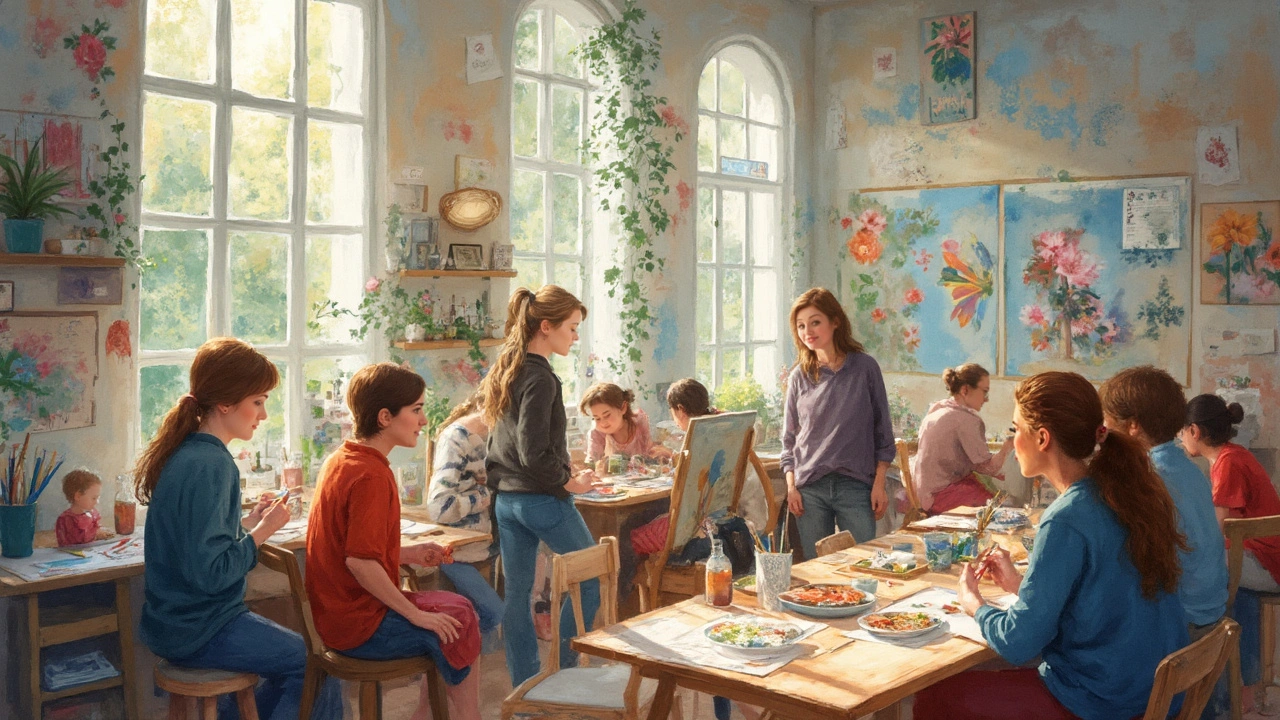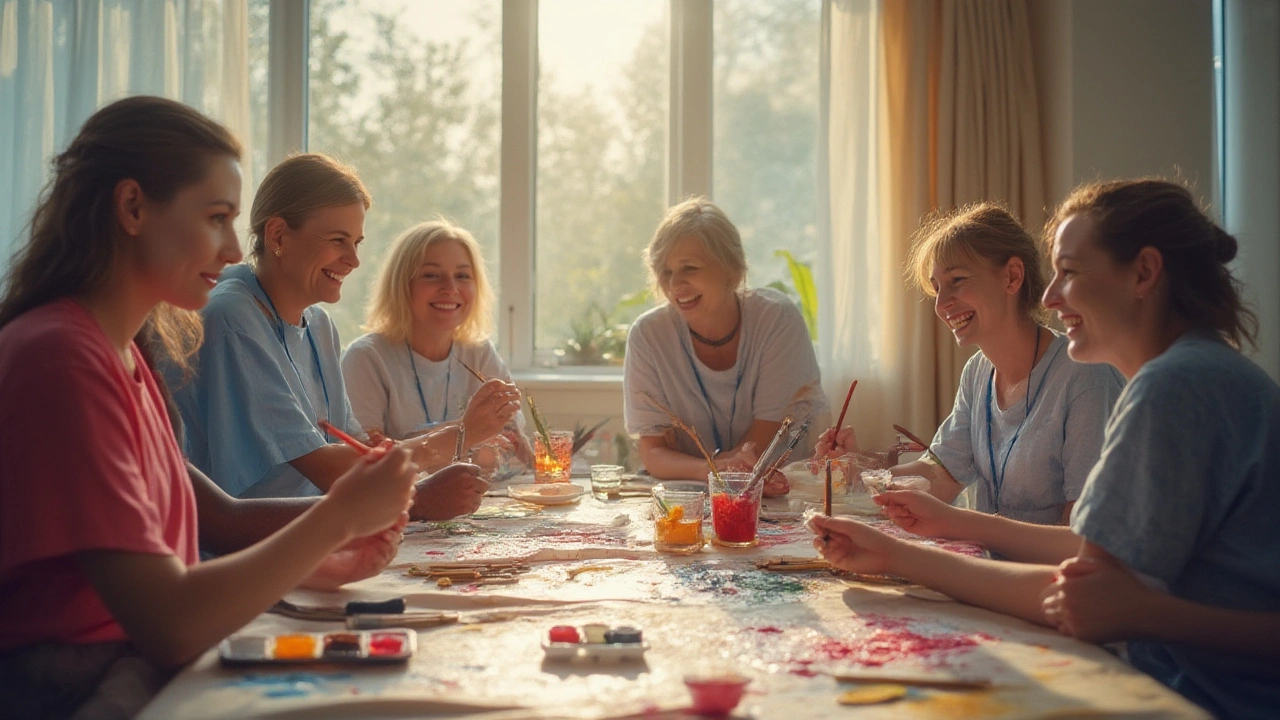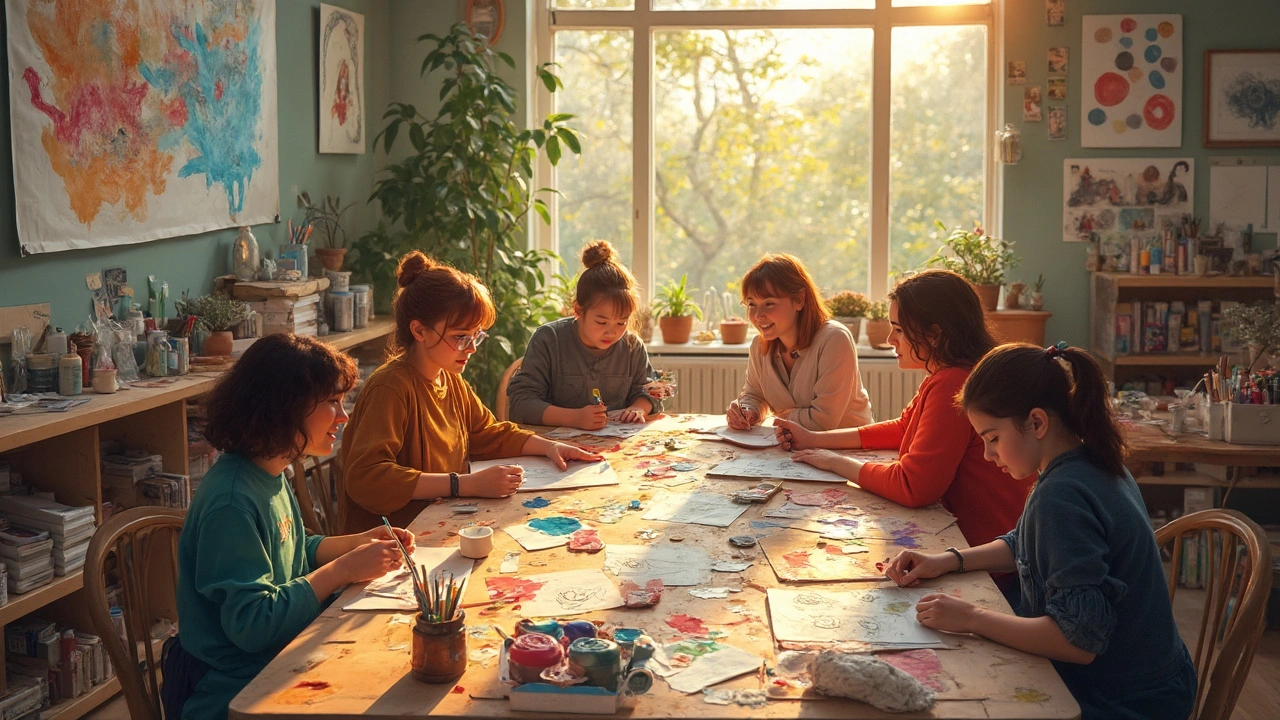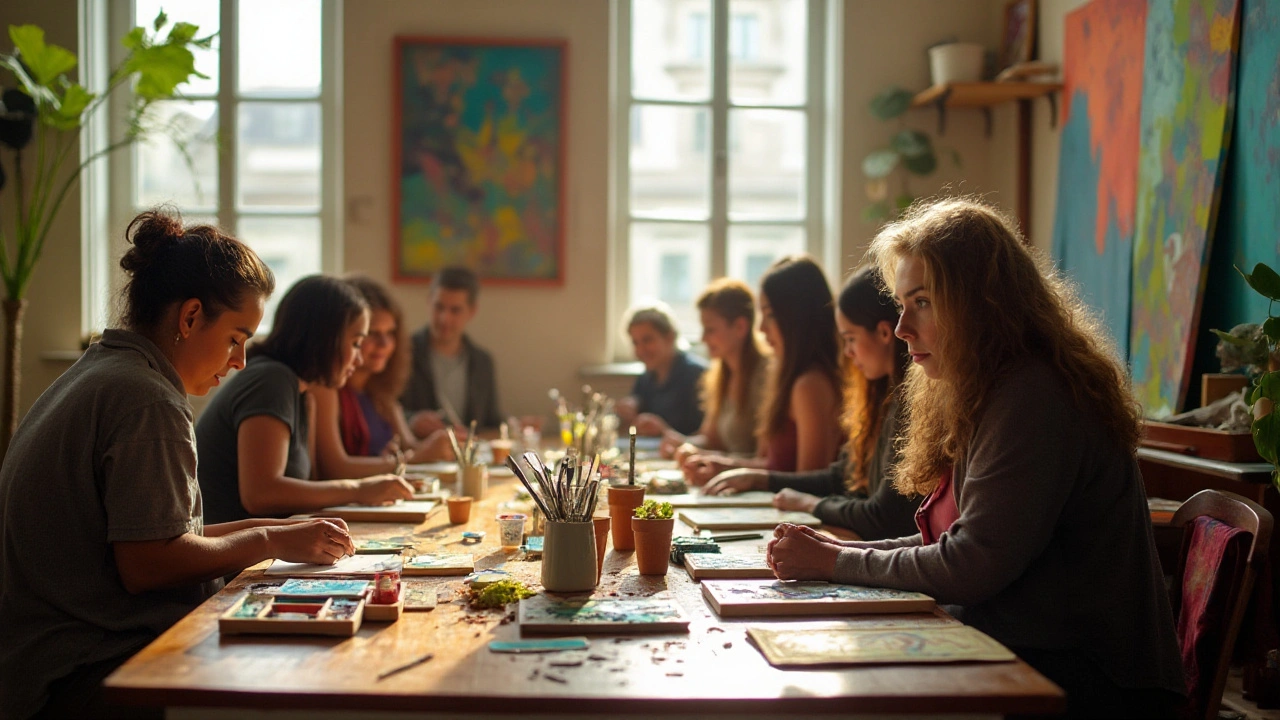Art Therapy: Unlock Your Mental Wellness Through Creativity
Feeling stressed, anxious, or stuck? Art therapy might sound a bit unusual if you haven't tried it, but it’s a powerful way to heal and express what’s inside without words. Unlike just making art for fun, this therapy uses creative activities like drawing, music, or movement with a trained therapist guiding you. The goal is to tap into your feelings and work through them in a fresh, hands-on way.
So what makes art therapy so effective? It works because creating art helps your brain in ways talking might not. When stressed or upset, it can be hard to explain how you feel—colors, shapes, and rhythms offer a different language. Studies show that art therapy lowers anxiety and helps people manage depression by promoting relaxation and new insights. Plus, it’s not just for kids or artists; adults from all walks of life, including soldiers and people recovering from trauma, benefit greatly.
How Does Art Therapy Actually Help?
Art therapy provides a safe space to explore your emotions without pressure or judgment. You don’t need to be ‘good’ at art to get something out of it. This approach helps you notice feelings you might be avoiding and gives you a way to release them. For example, sketching or painting anger or sadness can reduce its grip on your mind. Music therapy and dance, other forms of creative arts therapy, also help by reconnecting your mind and body through rhythm and movement.
Doctors and mental health professionals increasingly recommend these therapies as part of treatment plans. They help people open up when words fail and speed up emotional recovery. Plus, they encourage self-expression and improve confidence and social skills. Whether you’re dealing with anxiety, depression, or just want a new way to de-stress, trying creative arts could be the missing piece you need to feel better.
How to Get Started With Art Therapy
Ready to give art therapy a try? You can start simply at home with basic supplies—clay, crayons, or even just scrap paper. The key is not to focus on outcome but on the process and what it stirs up inside. Many community centers, therapists, and clinics offer guided sessions ranging from one-time workshops to ongoing programs. If you’re feeling stuck, working with a certified art therapist can tailor activities to what you need most.
Remember, this is about your personal journey toward mental wellness, not creating masterpieces. Even a few minutes a day of mindful, creative work can clear your mind and boost your mood. Look around our site for related tips on mental health and other healing therapies to mix and match what fits your lifestyle. Art therapy opens doors to explore feelings, find calm, and rediscover hope—one brushstroke at a time.
Creative Arts Therapies: A Fresh Perspective on Mental Health
- Marcus Fairchild
- Feb, 16 2026
Creative arts therapies use art, music, dance, and movement to help people heal from trauma, anxiety, and depression-without words. Backed by science and growing in use across Canada, these approaches offer a powerful alternative to traditional talk therapy.
Learn MoreOvercoming Trauma with Creative Arts Therapies: How Art, Music, and Movement Heal the Mind
- Jason Blackwood
- Dec, 23 2025
Creative arts therapies help trauma survivors heal through art, music, movement, and writing-when words aren't enough. Learn how these evidence-based approaches rewire the nervous system and restore a sense of safety and self.
Learn MoreCreative Arts Therapies: How Art, Music, and Movement Heal the Mind
- Thomas Brighton
- Dec, 1 2025
Creative arts therapies use painting, music, dance, and writing to help people heal from trauma, anxiety, and depression when words aren't enough. Backed by science, these approaches help reconnect mind and body through expression.
Learn MoreThe Promising Realm of Creative Arts Therapies
- Isobel Dunbar
- Nov, 18 2025
Creative arts therapies use painting, music, dance, and drama to heal emotional pain when words fall short. Backed by science, they help people with trauma, depression, autism, and dementia find expression and relief without relying on medication.
Learn MoreWhy Creative Arts Therapies Are Essential for Holistic Health
- Arlo Sterling
- Nov, 11 2025
Creative arts therapies like art, music, and dance therapy help heal emotional and physical pain when words fall short. Backed by science, they’re essential for true holistic health.
Learn MoreHow Art Therapy Boosts Mental Health and Reduces Stress
- Lyra Whitfield
- Oct, 13 2025
Explore how art therapy, a structured creative practice, improves mental health, eases stress, and helps with depression, anxiety, and trauma.
Learn MoreHow Creative Arts Therapies Work: Science-Backed Benefits for Body and Mind
- Isobel Dunbar
- Aug, 12 2025
Explore how creative arts therapies like art and music therapy really work. Learn their science, benefits, and real-world tips to enhance mental health.
Learn MoreWhy More Doctors Recommend Creative Arts Therapies for Mental Health
- Desmond Marchbanks
- Jul, 21 2025
Doctors now turn to creative arts therapies as science uncovers fresh ways art, music, and dance help patients recover, connect, and find relief.
Learn MoreCreative Arts Therapies: Unlocking Healing Through Creativity
- Jason Blackwood
- May, 27 2025
This article explores how creative arts therapies use art, music, movement, and drama to help people heal emotionally and mentally. It breaks down how these approaches work, who can benefit, and what a typical session looks like. You'll also pick up quick tips to try creative healing on your own. Real-life stories and science-backed facts highlight the power of creativity for mental wellness. Perfect if you're curious about non-traditional paths to feeling better.
Learn MoreExploring the Growing Impact of Creative Arts Therapies Today
- Thomas Brighton
- Nov, 11 2024
Creative arts therapies have gained prominence in recent years as a valuable tool in mental and emotional healing. These therapies use art, music, dance, and drama to facilitate communication and expression for individuals struggling with a variety of issues. By tapping into creativity, they offer an alternative to traditional therapy methods, creating a supportive space for self-discovery and healing. This article delves into the benefits, growing importance, and practical applications of creative arts therapies in today's world.
Learn More